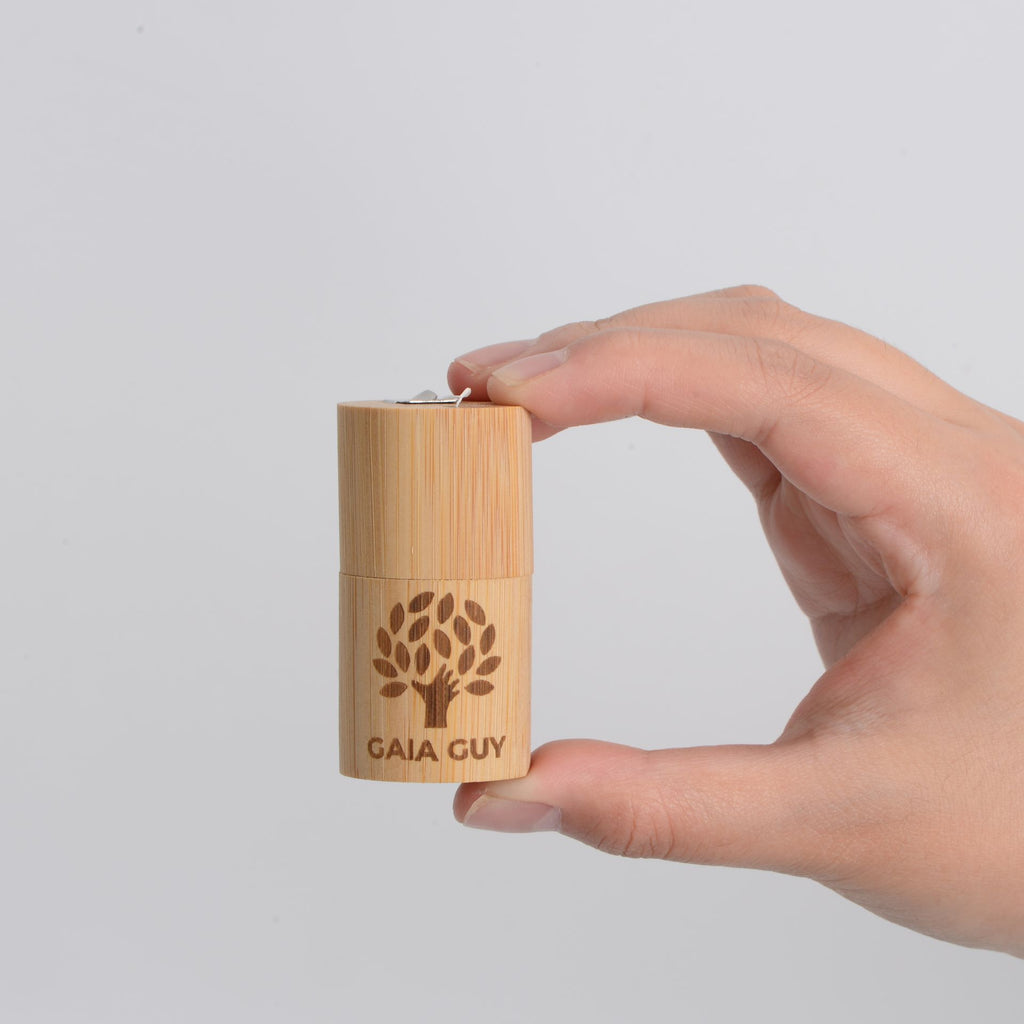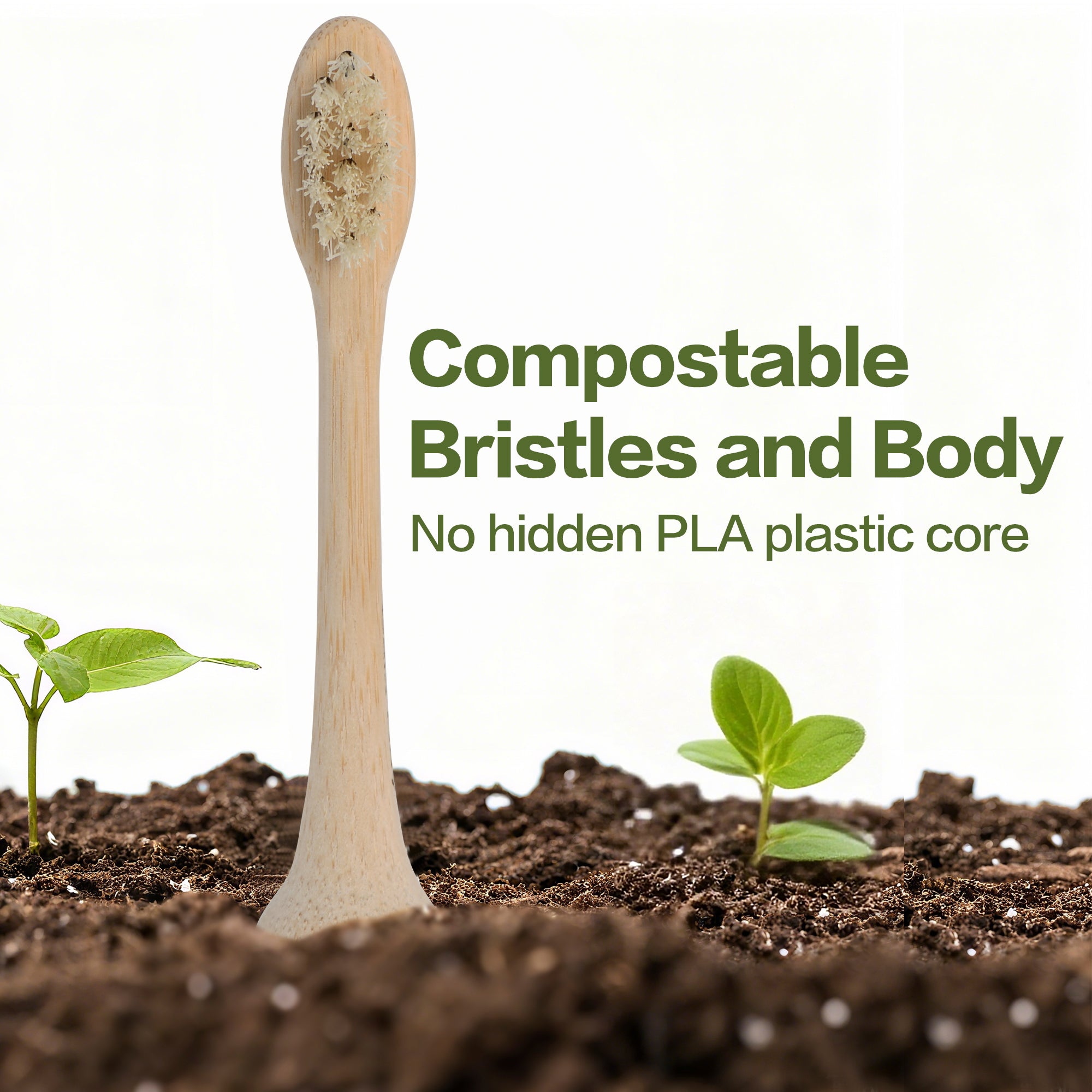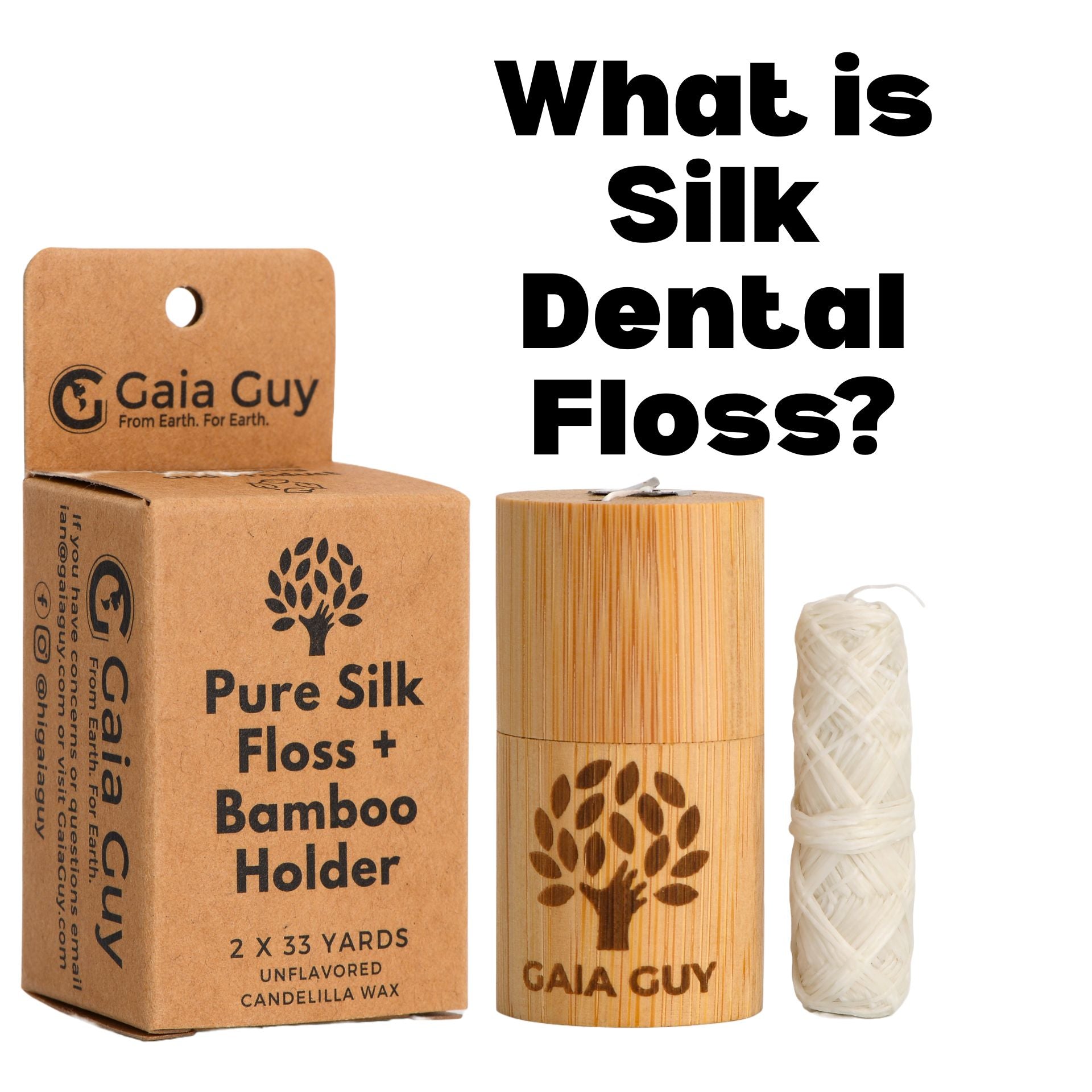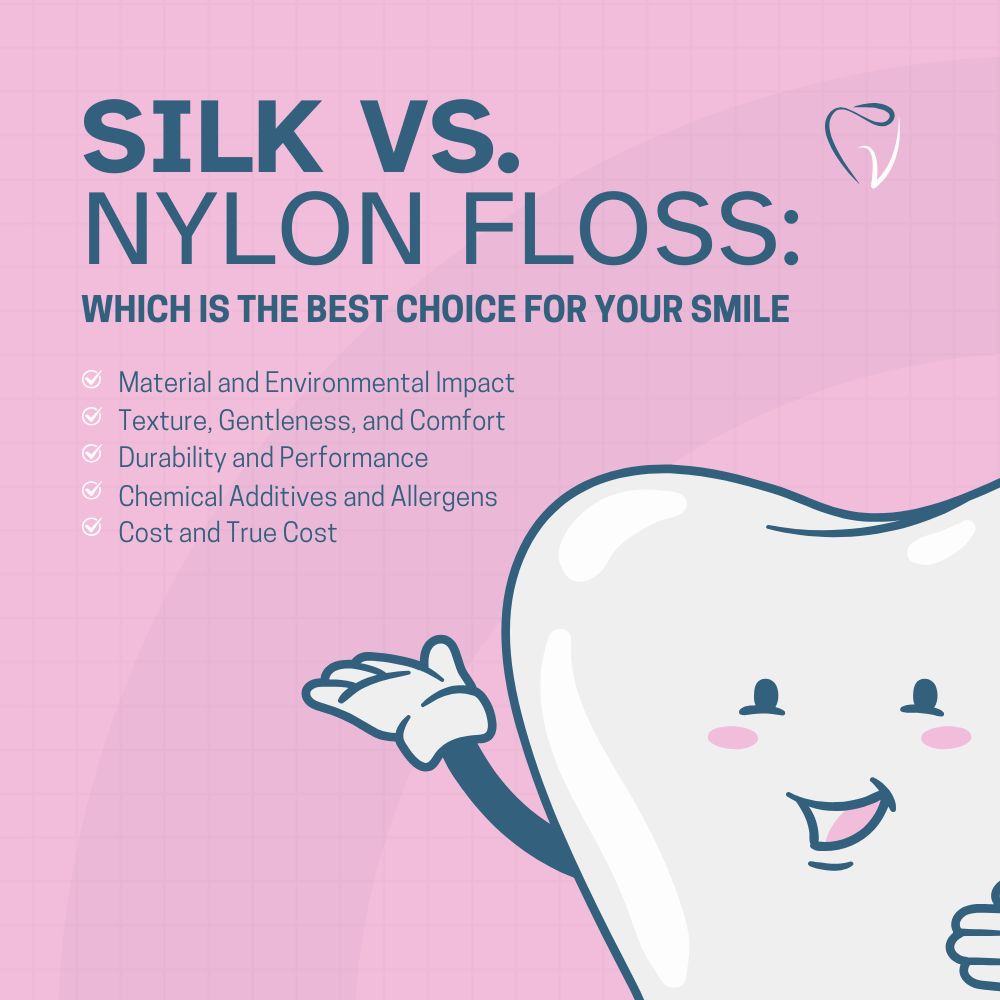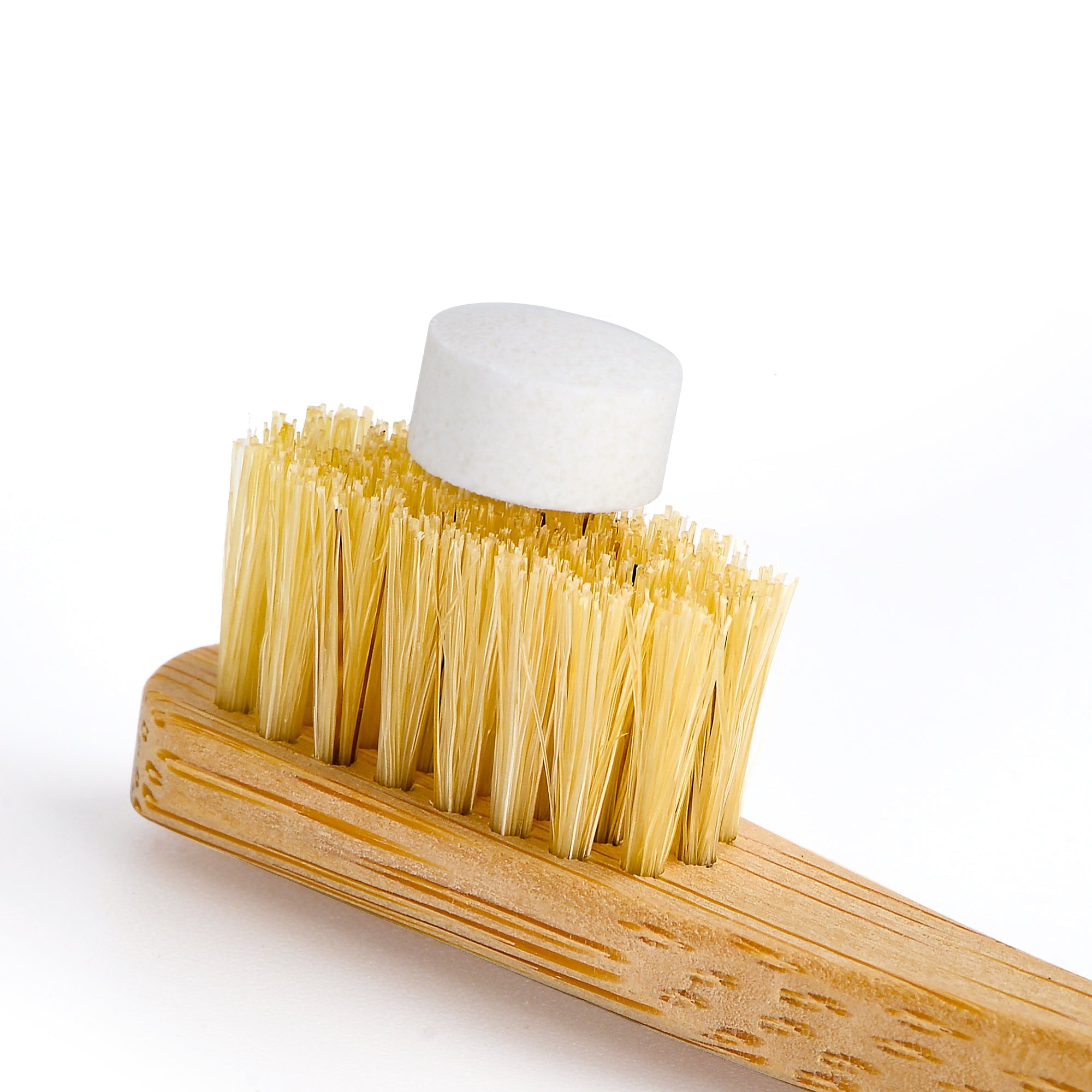In the realm of plastic-free dental hygiene, flossing stands as a crucial step for maintaining optimal oral health. With an array of options available, silk dental floss has emerged as a natural and biodegradable alternative, sparking curiosity about its efficacy.

Let's delve into the world of flossing to uncover the advantages and potential drawbacks of using silk dental floss after a quick ancient history lesson.
Silk Crafting Legacy in China: A Cultural Tapestry of Sericulture
Sericulture and silk craftsmanship in China, specifically in Zhejiang and Jiangsu Provinces, boast a rich history deeply embedded in cultural traditions. The silk-making process involves a comprehensive sequence, including mulberry planting, silkworm rearing, silk unreeling, thread production, and fabric weaving.

This intricate craft holds significant economic importance for women in rural regions, with knowledge transmission occurring through familial ties and apprenticeship, fostering a sense of community and cultural continuity.

Symbolically linking the life cycle of silkworms to human existence, this practice integrates sustainable elements such as using silkworm waste to feed fishes and utilizing pond mud to fertilize mulberry trees, creating a balanced and eco-friendly ecosystem.
The cultural significance extends to festivals and rituals, where silkworm farmers engage in traditions like the Goddess of the Silkworm story to ward off evil and ensure a prosperous harvest.

Notably, the Silkworm Flower Festival, celebrated in April, becomes a vibrant occasion for female silkworm farmers, who adorn themselves with silk or paper flowers and make offerings, showcasing the artistic and festive dimensions of this cultural heritage rooted in China's rich legacy.
This cultural phenomenon is deeply ingrained in the country's profile and has received UNESCO recognition as an Intangible Cultural Heritage.
Pros of Silk Dental Floss:
-
Gentle on Gums: The smooth texture of silk dental floss is a blessing for those with sensitive gums, offering gentle cleaning to minimize irritation or discomfort.
-
Biodegradable: Silk floss's biodegradability sets it apart, naturally decomposing over time and making it an environmentally friendly option compared to synthetic alternatives.
-
Aesthetically Pleasing: Packaged in stylish designs and containers, silk dental floss adds an attractive element to your oral care routine, bringing a touch of elegance to your bathroom. Check out this nifty bamboo dental floss holder by Gaia Guy.
Cons of Silk Dental Floss:
-
Less Durable: Despite its gentleness, silk floss may be less durable, especially for individuals with tightly spaced teeth or dental work like braces.
-
Limited Availability: Silk dental floss might be harder to find in local stores compared to traditional options, potentially requiring exploration of specialty shops or online ordering.
-
Cost: While offering benefits, silk dental floss tends to be pricier than synthetic alternatives, prompting consideration of its value against your budget.
Floss Pickers: Silk dental floss enthusiasts using floss pickers may face challenges, as most in the market utilize nylon or PTFE floss.
You also have to be careful with claims of these PLA and other bioplastics pickers which may actually still cause more harm than good.
While silk dental floss presents advantages such as gentle cleaning and biodegradability, evaluating its pros and cons is essential. Factors like durability, availability, and cost must be weighed.

Ultimately, the choice between silk dental floss and alternatives hinges on personal preference, dental needs and a commitment to opt for plastic-free and even bioplastic-free to do our part for the environment. Whether silk or another type, regular flossing remains pivotal for healthier teeth and gums.




